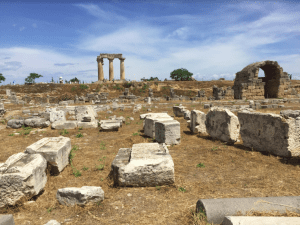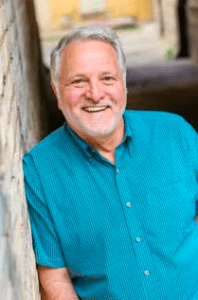George Whitefield: America’s Spiritual Founding Father?!
Thomas Kidd is Professor of History at Baylor University. Kidd is the author or editor of many works in the field of early American history. His latest book, George Whitefield: America’s Spiritual Founding Father framed this interview.
The interview was conducted by David George Moore. Dave blogs at www.twocities.org.
Moore: You’ve written biography before with your book on Patrick Henry. What made you choose to write about Whitefield?
Kidd:I had worked on the Great Awakening in earlier books, but I felt like there was broad interest in Whitefield, who was the most influential evangelist of the eighteenth century. His 300th birthday was in December 2014, which seemed like an ideal moment to revisit him and re-introduce him to readers interested in religious history, the history of revivals, and the American founding.
Moore: I recently asked Fred Sanders a question about Wesley and Whitefield’s views on slavery. I would like to ask you about this as well.
Why was Wesley so opposed to slavery while Whitefield we could characterize at least as fairly “pragmatic” on the issue? They were contemporaries, so it can’t be due to a difference of the times they lived in, so what was it?
Kidd: Yes, unfortunately Whitefield both owned slaves and was an important player in having slavery introduced in colonial Georgia, where it was initially banned. To understand the contrast with Wesley, I think chronology and place matter a great deal. First, neither Wesley nor John Newton (the former slave trader of “Amazing Grace” fame) denounced slavery in print until after Whitefield’s passing in 1770.
Second, Whitefield was deeply influenced by the social and economic realities of life in Colonial America in a way that Wesley was not. Whitefield had notions that you could pair economically robust colonies (which, to him and most whites, seemed to requite slaves in the South) with active evangelism of slaves. His greatest social experiment along these lines came at his Bethesda Orphanage in Savannah, where he envisioned providing for many orphans through nearby plantations worked by slaves, who would also be evangelized and possibly educated. It all seems terribly contradictory in retrospect, but Whitefield was very much a man of his time, in which most whites at least accepted the existence of slavery.
Moore: My wife has written on the marriages/ministries of Wesley, Whitefield, and Edwards. Wesley certainly had a troubled marriage and Edwards by all accounts had a stellar one. (Good Christians, Good Husbands?)
Whitefield seemed as consumed with ministry outside the home as Wesley, but his wife was much more understanding than Molly Wesley. I actually have several questions on this issue, but will limit it to this: Do you think itinerants like Whitefield should remain single?
Kidd:As a good Protestant, I don’t like prescribed celibacy, but I do think that from a modern perspective Wesley and Whitefield probably should have considered remaining single. Elizabeth Whitefield was an extraordinarily patient woman, which saved the Whitefields a great deal of trouble in their relationship. He told her that if she married him, he would almost never be at home, and he certainly fulfilled that promise.
Moore: Edwards said he was an old man at 54, Whitefield did not quite make it to 56 and Wesley amazingly almost made it to 88. What was the average life span for a man during eighteenth century America? Also, was there much talk that a long life being blessed by God?
Kidd:Whitefield lived to a fairly average age for the time, but of course the averages were kept quite low by death from illnesses and injuries that could have been treated better with modern medicine. (Edwards died of a smallpox inoculation gone bad, for example.) Whitefield never expressed much of a desire for a long life, seeming to prefer the idea that he would wear himself out in service of the gospel. His incredibly demanding preaching and travel schedule surely contributed to an early death for him.
Moore: What most surprised you in researching the life of Whitefield?
Kidd: Aside from the depth of his complicity in slavery, I was struck by just how hard working Whitefield was. Those who know about him recall a phenomenally talented public speaker, but I was bowled over by his three decades of preaching, often two or three times a day, and nearly non-stop travel by horse, carriage, and boat. One of the reasons he was the most important evangelist of the Great Awakening is because of his diligence and endurance.
Moore: I have some thoughts of my own as to why Whitefield is not well known, while Edwards and Wesley are very well known. I am curious as to what you would highlight as the reasons.
Kidd:In Edwards, John Wesley, and Whitefield you have the greatest intellectual, the greatest organizer, and the greatest evangelist of the Great Awakening respectively.Thus, Edwards left his legacy in his writings, and Wesley in the Methodist Church. Whitefield’s significance was comparatively caught up in the moment, in his sermons as delivered. We can read his sermons today and, though they are weighty and moving, they surely don’t have the same impact as they did when people heard him in person, preaching to tens of thousands of people in the fields.
Moore: I am an avid watcher of Book TV on C-Span. My favorite show is In Depth where they interview an author over the body of their work. Several biographers have been interviewed.
It is fascinating to see the way biographers like Robert Caro, James McPherson, or Edmund Morris storyboard the lives of their subjects. Give us a glimpse of how you corral your research, keep it organized, cull out the excess, and bring it all together into a cohesive whole.
Kidd:With subjects like the Great Awakening or the American Revolution, I have the advantage of already having studied the broader topics for years. So to tell the life story of Whitefield, I mainly needed to work through all the extant letters, diaries, newspaper accounts, and sermons, picking out the items that are the most intriguing, and leaving out what is repetitive or tangential. Whitefield presents significant challenges on this front, because the documentation of his life is vast – far larger than that surviving about Patrick Henry, for example. This is because Whitefield was such a sensation. He was the best-known person in America before the Revolution. Such figures tend to leave a big paper trail.
Moore: I happen to know a bit about two of your next writing projects, so I imagine that information is public! If you don’t mind, would you share with the Jesus Creed community what you are working on next?
Kidd:In May 2015 I have a book on the history of Baptists in America coming out, co-authored with my friend and Baylor colleague Barry Hankins. I am also working on two projects for Yale University Press – a history of Colonial America, and a religious biography of Benjamin Franklin.











